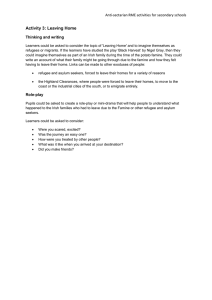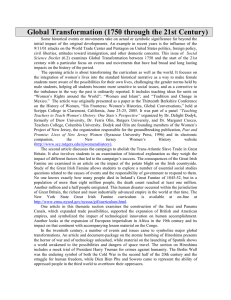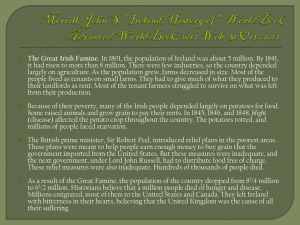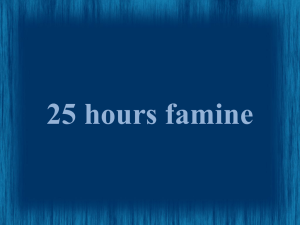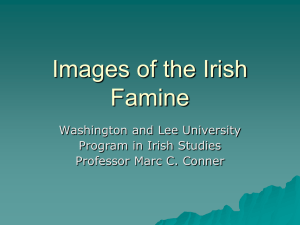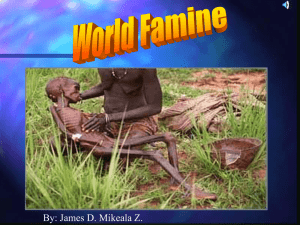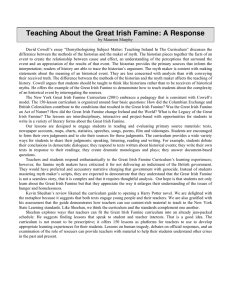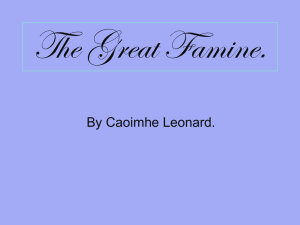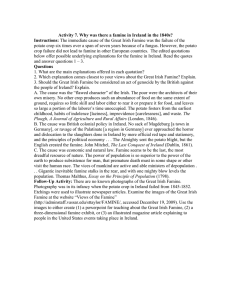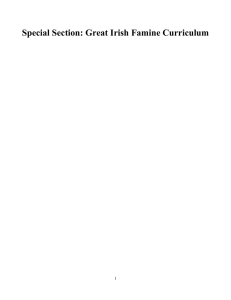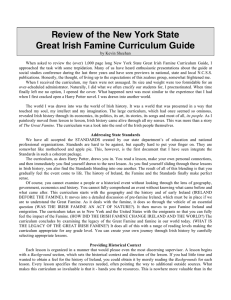HIS3033
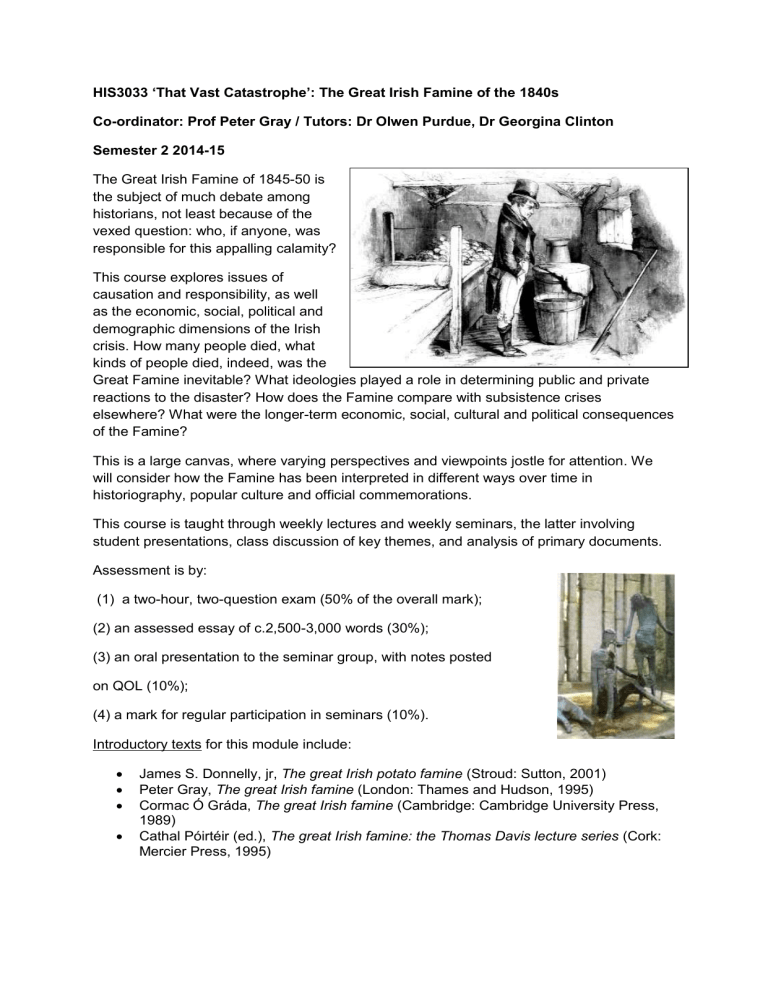
HIS3033 ‘That Vast Catastrophe’: The Great Irish Famine of the 1840s
Co-ordinator: Prof Peter Gray / Tutors: Dr Olwen Purdue, Dr Georgina Clinton
Semester 2 2014-15
The Great Irish Famine of 1845-50 is the subject of much debate among historians, not least because of the vexed question: who, if anyone, was responsible for this appalling calamity?
This course explores issues of causation and responsibility, as well as the economic, social, political and demographic dimensions of the Irish crisis. How many people died, what kinds of people died, indeed, was the
Great Famine inevitable? What ideologies played a role in determining public and private reactions to the disaster? How does the Famine compare with subsistence crises elsewhere? What were the longer-term economic, social, cultural and political consequences of the Famine?
This is a large canvas, where varying perspectives and viewpoints jostle for attention. We will consider how the Famine has been interpreted in different ways over time in historiography, popular culture and official commemorations.
This course is taught through weekly lectures and weekly seminars, the latter involving student presentations, class discussion of key themes, and analysis of primary documents.
Assessment is by:
(1) a two-hour, two-question exam (50% of the overall mark);
(2) an assessed essay of c.2,500-3,000 words (30%);
(3) an oral presentation to the seminar group, with notes posted on QOL (10%);
(4) a mark for regular participation in seminars (10%).
Introductory texts for this module include:
James S. Donnelly, jr, The great Irish potato famine (Stroud: Sutton, 2001)
Peter Gray, The great Irish famine (London: Thames and Hudson, 1995)
Cormac Ó Gráda, The great Irish famine (Cambridge: Cambridge University Press,
1989)
Cathal Póirtéir (ed.), The great Irish famine: the Thomas Davis lecture series (Cork:
Mercier Press, 1995)

